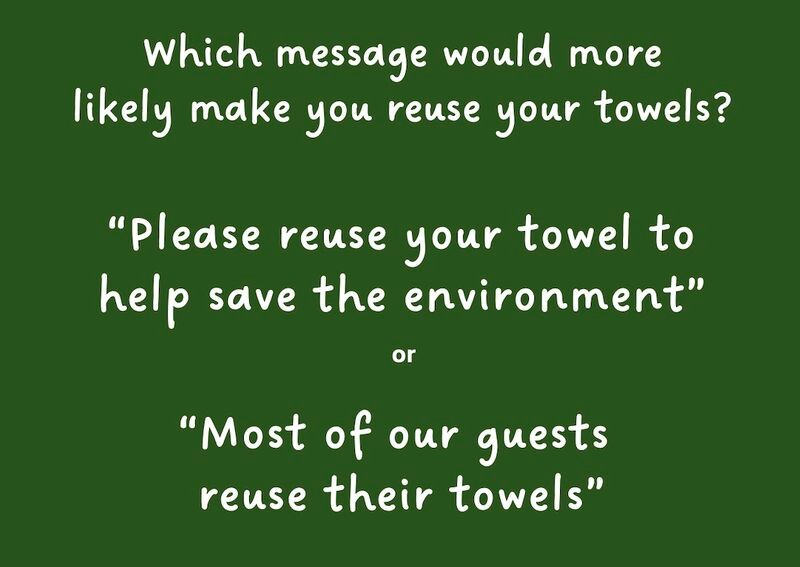My 15-yr old daughter made me happy to no end when she asked me last weekend to pick up a McDonald’s job application form for her.
I’ve long encouraged my children to seek holiday jobs once they are past 16. I want them to learn the value of hard work and money.
In prior conversations, my girl never gave it any serious thought. I’d almost given up; not wanting to unduly pressure her, yet a little unsettled that she didn’t seem keen. So her request was unexpected.
I responded “Sure. What’s making you think of this?”
Turns out a classmate of hers had been working weekends for the past few months. And so she wanted to also.
+++
Social norms can be powerful motivators of change. Research confirms this.
E.g. In the early 2000s, to reduce utility bills, hotels started leaving a message card that typically read, “Dear Valued Guest, when you reuse your towels, we will jointly reduce our environmental impact.”
Over time, hotels and social scientists realised that one additional line in the message increased the rate of towel reuse by 33%.
That line was “Most of our guests reuse their towels”, or a variation of it.
The knowledge that many others before them had embraced a behaviour helped guests adopt that behaviour too.
What’s this got to do with leadership?
Two things:
👉 When we seek to change a team member’s behaviour, communicating it in the context of “this is something that many have faced and overcome” helps motivate them.
👉 When we present to a client, bringing social proof in the form of endorsements, testimonials and statistics helps convince them.
We are all social beings; knowing that others have trodden the same path we are currently navigating is just comforting.
